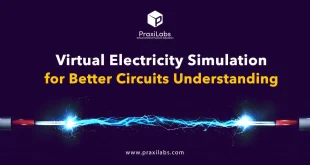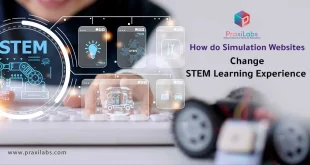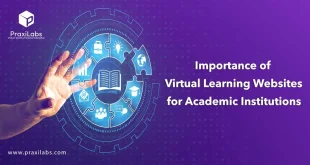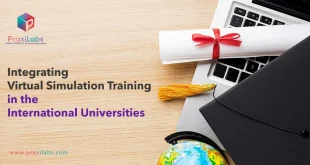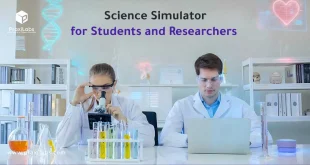Last Updated on November 27, 2025 by Muhamed Elmesery Understanding how circuits work has never been easier, thanks to virtual electricity simulations. These interactive digital tools let students build, test, and tweak circuits in a safe, visual environment—making abstract electrical concepts clearer than ever. With instant feedback, error-free experimentation, and zero risk of accidents, virtual simulations give learners the freedom …
Read More »virtual labs
How do simulation websites change STEM learning experience?
Last Updated on November 23, 2025 by Muhamed Elmesery In today’s digital classrooms, simulation websites are transforming how students explore science. By turning complex theories into interactive, hands-on experiments, these virtual platforms make STEM learning more accessible, engaging, and practical. They bridge the gap between theory and application—allowing learners to experiment safely, visualize abstract concepts, and develop real scientific skills …
Read More »Importance of Virtual Learning Websites for Academic Institutions
Last Updated on November 17, 2025 by Muhamed Elmesery In today’s rapidly evolving educational landscape, virtual learning websites have become indispensable tools for academic institutions. They go beyond simple online classrooms—offering dynamic, interactive platforms that enhance accessibility, and engagement for students and educators alike. By integrating virtual learning environments, universities and schools can provide flexible, personalized, and cost-effective education while …
Read More »Integrating Virtual Simulation Training in the International Universities
Last Updated on November 16, 2025 by Muhamed Elmesery In today’s rapidly evolving academic landscape, international universities are embracing virtual simulation training as a powerful tool to transform traditional education. By blending immersive digital environments with hands-on learning, universities are equipping students with real-world skills—without the limitations of physical labs or geographical boundaries. From engineering to life sciences, simulation-based learning …
Read More »Science simulator for students and researchers
Last Updated on November 4, 2025 by Muhamed Elmesery In today’s fast-paced world of science and discovery, simulation technology is transforming the way students and researchers learn, experiment, and innovate. A science simulator provides a safe, interactive, and cost-effective environment for exploring complex experiments that would otherwise require expensive equipment or hazardous materials. From visualizing chemical reactions to modeling physical …
Read More » PraxiLabs A virtual world of science
PraxiLabs A virtual world of science

